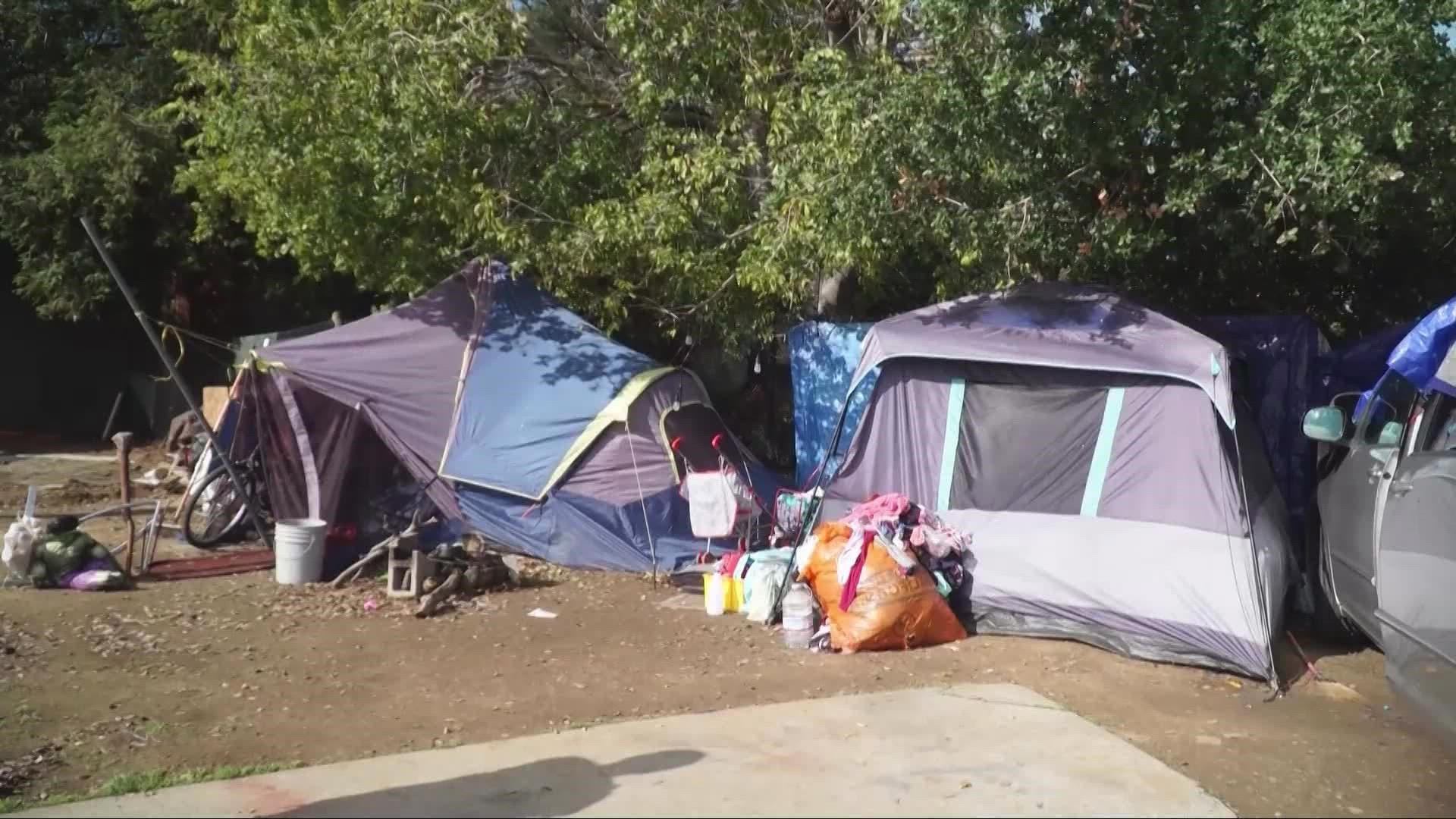SACRAMENTO, Calif. — Large encampments on the streets of Sacramento bring the growing crisis of homelessness into sharp focus.
This year, city council placed the business-backed Measure O on the November ballot to address it, but many homeless outreach groups oppose it.
"Yes, we wrote the measure, we put this together with experts," said Josh Woods, CEO of the Sacramento Region Business Association, which supports the measure alongside other business groups.
The measure would ban encampments, require the city to identify a minimum number of emergency shelter spaces, and conditions the city's camping ordinance on shelter space available.
Woods said it's not just because the association wants streets clean for businesses, but also "because we want them safe for our families."
"We think that the people who are homeless deserve to have a better shot at life," he said.
However, advocates say while the measure's supporters might be aiming to make things better, the measure itself doesn't do that.
Public Health Advocates is among the various homeless outreach groups opposing to the measure.
"I personally believe that housing is a human right, but criminalizing people for experiencing homelessness is not the way to do that," Flojaune Cofer, senior director of policy at Public Health Advocates, said.
In late September, voters gathered in East Sacramento for a tense, but mostly civil, debate over the ballot measure.
Daniel Conway, chief proponent of Measure O, argued for a 'yes' vote on the initiative to "send a message to our elected leaders that this (homeless crisis) is unacceptable."
Arguing against the initiative, District 4 Councilmember Katie Valenzuela said Measure O "does nothing to address the problems we're facing."
Conway said it would require the city to establish new temporary shelters, help move people toward permanent housing and require people to accept the offer of help or move.
"You can’t camp here, we have places for you to go, but we’re no longer a city that lets people live and die in public places," Conway said.
Valenzuela said the measure wouldn't help with no new funding, new housing, or mental health or substance abuse services.
“I’m not going to find a place to move 10,000 people in this county tomorrow," Valenzuela said. "We could move heaven and earth to build as much housing and services as we want, there will still be encampments under this freeway tomorrow.”
Even if it passes, implementing Measure O depends on a legally-binding partnership agreement with the county.
"I’ve heard from county leadership, I’ve heard from city leadership, and all you hear is more of the same, in terms of why we can’t do things," Conway said.
There's broad agreement between the two sides that the status quo isn't working; voters will decide if Measure O is a step in the right direction this November.
We want to hear from you
In October, ABC10 launched a voter engagement project to make sure you feel ready to vote. Have any other election-related questions you would like us to answer? Please let us know by filling out the survey below.
We encourage you to answer as many questions as you can, but we understand you may not feel comfortable answering them all.
WATCH ALSO:



















